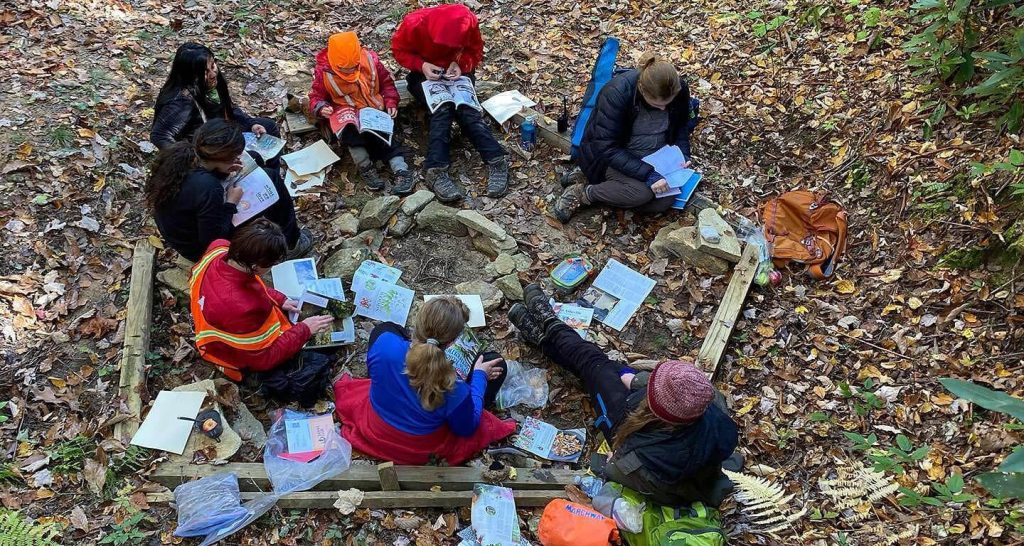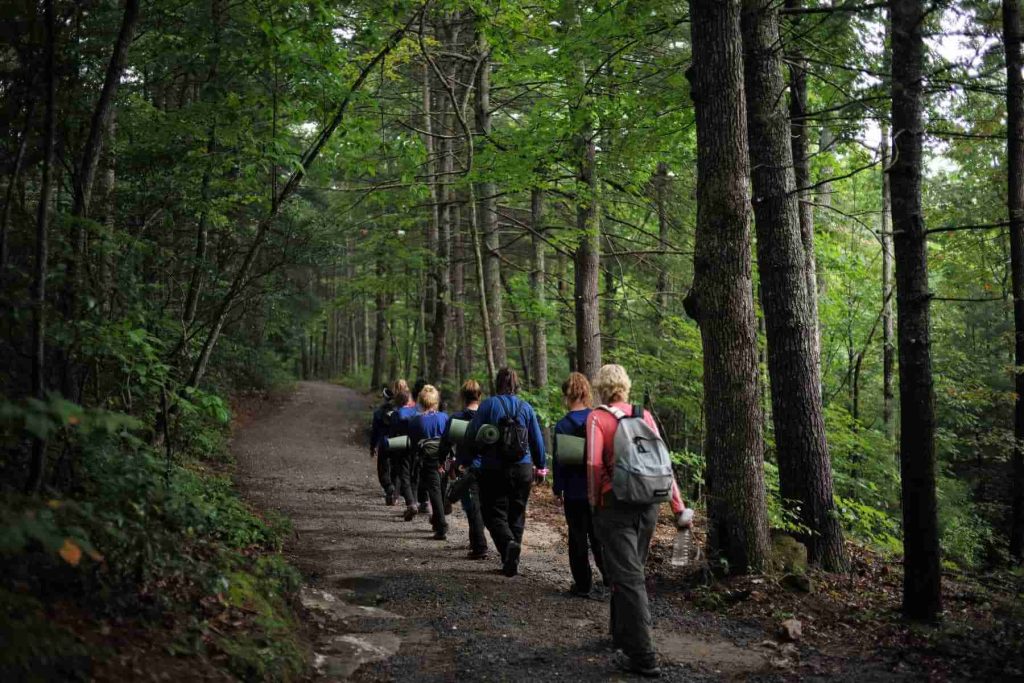Trails Carolina, a wilderness therapy program, has recently come under intense scrutiny due to allegations of abuse and mistreatment by former participants and their families. These allegations encompass emotional abuse, neglect, physical maltreatment, and even sexual abuse.
As the program faces growing criticism and a lawsuit, it is essential to delve into the ongoing Trails Carolina “investigation”, the program’s future, and measures that can be taken to ensure the safety of participants in wilderness therapy programs.
The Serious Allegations Against Trails Carolina

The allegations against Trails Carolina are deeply troubling and include various forms of abuse:
- Emotional Abuse: Numerous former participants have reported being subjected to verbal abuse by staff members, including name-calling and attempts to make them feel worthless.
- Neglect: Participants have claimed that they were not provided with adequate food and water, and were forced to endure harsh conditions, such as sleeping in cold and wet environments.
- Physical Maltreatment: Shockingly, some former participants have alleged that they were physically assaulted by staff members, including pushing, shoving, and hitting.
- Sexual Abuse: In a particularly disturbing lawsuit filed in 2022, a father accused Trails Carolina of negligently permitting his 14-year-old daughter to be sexually abused by a staff member.
The Ongoing Independent Investigation
In response to these grave allegations, Trails Carolina has initiated an independent investigation. Trails Carolina investigation is still in progress, but it has involved interviews with former participants and staff members, as well as a thorough review of program-related documents.
The investigator’s report has not yet been made public, but it is eagerly anticipated. This report is expected to provide crucial insights into the allegations against Trails Carolina and the practices within the program. It will be a significant determinant in the program’s future.
The Uncertain Future of Trails Carolina
The future of Trails Carolina remains uncertain. The program is facing mounting public criticism and legal pressure, which could potentially lead to its closure. However, Trails Carolina possesses substantial financial resources and is likely to vigorously contest the allegations and legal actions against it.
The outcome of the independent investigation will likely play a pivotal role in determining the program’s fate. Depending on the findings, Trails Carolina may need to implement significant changes or face more severe consequences.
Preventing Abuse in Wilderness Therapy Programs
The allegations against Trails Carolina serve as a stark reminder of the potential dangers within wilderness therapy programs. To prevent abuse and ensure the safety of participants, several steps can be taken:
- Increased Oversight: Wilderness therapy programs should be subject to greater oversight, including mandatory licensing and accreditation, along with regular inspections to ensure compliance with safety standards.
- Better Training: Staff members at these programs must receive comprehensive training in handling challenging situations and identifying and preventing abuse.
- Stronger Policies: Wilderness therapy programs should establish robust policies that prioritize participant safety and outline clear procedures for handling abuse complaints.

Protecting Your Child
If you are considering enrolling your child in a wilderness therapy program or any similar treatment, it is vital to take proactive steps to protect their well-being:
- Research Thoroughly: Conduct extensive research on the program, reading reviews from former participants and their families to gain insights into their experiences.
- Communication: Maintain open and frequent communication with your child throughout their participation in the program, actively listening to their concerns and addressing them seriously.
- Active Involvement: Stay involved in your child’s treatment by visiting them regularly, discussing their progress with program staff, and ensuring their overall well-being.
The allegations against Trails Carolina underscore the importance of making informed decisions when it comes to the well-being of young participants in wilderness therapy programs. By being diligent and vigilant, you can help ensure a safe and positive experience for your child and others in similar programs.
FAQs
1. What is wilderness therapy?
- Wilderness therapy is a therapeutic approach that involves outdoor activities, adventure, and wilderness experiences to promote personal growth, self-discovery, and emotional healing among participants.
2. What is Trails Carolina?
- Trails Carolina is a wilderness therapy program that has faced allegations of abuse and mistreatment by former participants and their families.
3. What are the allegations against Trails Carolina?
- The allegations against Trails Carolina include emotional abuse, neglect, physical maltreatment, and even sexual abuse of participants. Former participants and families have raised serious concerns about their experiences in the program.
4. Has Trails Carolina responded to the allegations?
- Yes, Trails Carolina has denied all allegations of abuse. The program’s CEO, David Crouse, has stated their commitment to providing a safe and therapeutic environment for students.
5. What is the status of the independent investigation into Trails Carolina?
- The independent investigation into Trails Carolina is ongoing. The investigator has interviewed former participants and staff members and is reviewing program-related documents. The findings of the investigation are not yet public.
6. What could be the potential consequences for Trails Carolina if the allegations are substantiated?
- If the allegations against Trails Carolina are substantiated, the program may face legal repercussions, potential closure, or the need for significant operational changes, depending on the severity of the findings.
7. Are all wilderness therapy programs potentially abusive?
- No, not all wilderness therapy programs are abusive. Many reputable programs prioritize the safety and well-being of participants. However, the allegations against Trails Carolina highlight the importance of thorough research and due diligence when choosing a program.
8. What steps can be taken to prevent abuse in wilderness therapy programs?
- To prevent abuse in wilderness therapy programs, measures such as increased oversight, better staff training, and the establishment of stronger policies can be implemented. These steps aim to ensure the safety of participants and address potential issues.
9. What can parents do to protect their children in wilderness therapy programs?
- Parents can protect their children by conducting thorough research, maintaining open communication, and staying actively involved in their child’s treatment. These steps help ensure a safe and positive experience for participants.
10. When will the results of the independent investigation be made public?
- The exact timeline for the release of the independent investigator’s report is not specified. However, it is expected to be made public once the investigation is completed, shedding light on the allegations against Trails Carolina and its practices.
Conclusion
In conclusion, the allegations against Trails Carolina have raised critical concerns about the safety and well-being of participants in wilderness therapy programs. The serious allegations of emotional abuse, neglect, physical maltreatment, and even sexual abuse have prompted a thorough independent investigation into the program’s practices.
While Trails Carolina has denied these allegations and expressed its commitment to a safe environment, the outcome of the investigation will be crucial in determining the program’s future. The results of Trails Carolina investigation will not only impact Trails Carolina but also have broader implications for the wilderness therapy community as a whole.
It is essential to remember that not all wilderness therapy programs are potentially abusive, and many genuinely aim to provide therapeutic experiences in a safe and supportive environment. However, the Trails Carolina case underscores the importance of due diligence when choosing such programs and the need for increased oversight, better staff training, and stronger policies to ensure the well-being of participants.
Ultimately, the hope is that through transparency, accountability, and a commitment to safeguarding the welfare of participants, the wilderness therapy industry can continue to offer valuable therapeutic experiences for those in need while preventing any instances of abuse or mistreatment. The future of Trails Carolina and the broader discussion surrounding wilderness therapy programs will depend significantly on the findings of the ongoing investigation and the collective efforts to address these concerns.






